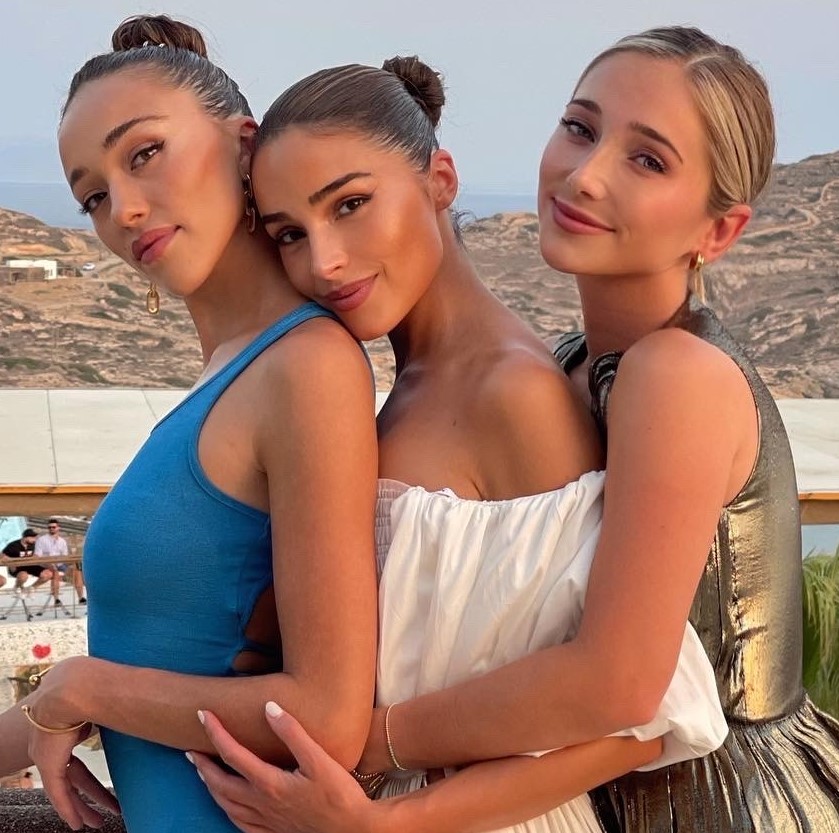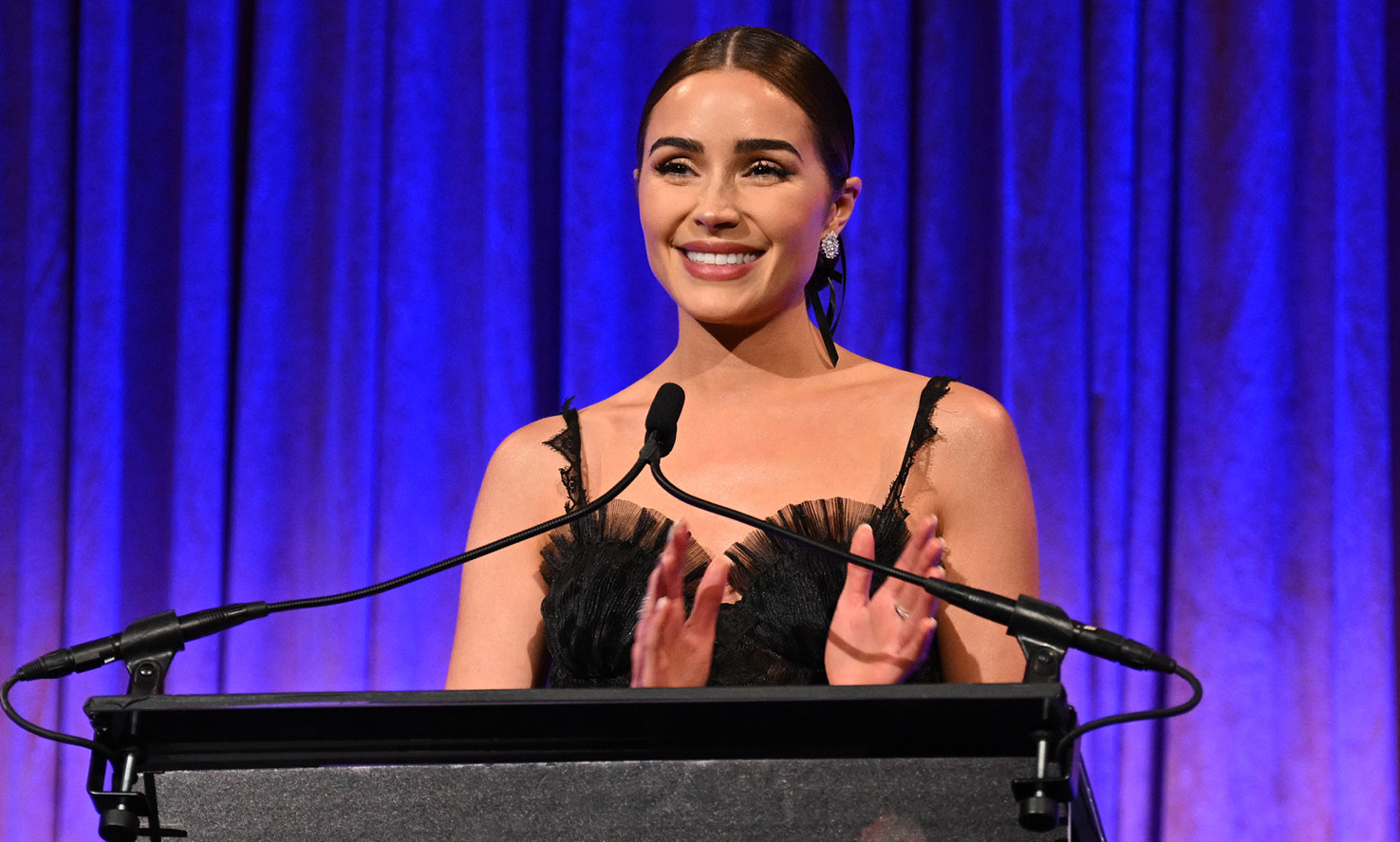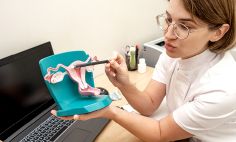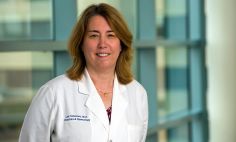When Olivia Culpo was on stage after winning both the Miss USA and Miss Universe pageants in 2012, she was in pain, but she didn’t know why. It wasn’t until years later that the model, actress, and fashion and beauty influencer found the cause of her pain and other symptoms.
Endometriosis is an often painful disease where tissue that looks like the lining of the uterus grows in other places in the body, including the ovaries, fallopian tubes, and bladder. It affects an estimated 10% people with a uterus who are of reproductive age. Since her diagnosis and successful treatment, Culpo has become an advocate for others with endometriosis. She recently spoke with NIH MedlinePlus Magazine about her diagnosis and the importance of self-advocacy and support from others when dealing with the disease.
How long did you experience symptoms before you were diagnosed?
I wasn’t diagnosed until about 12 years after my first symptoms appeared. During that time, I went through at least a dozen doctors who didn’t know what was wrong, including some who didn’t believe anything was wrong. I was around 15 years old when the symptoms started, and they became much more intense in my early 20s. The most persistent and obvious symptom was horrible low back pain, but I also had bloating, nausea, and rectal bleeding.
“The best advice I can give—and I wish I had known this from the beginning—is that you have to advocate for yourself.”
–Olivia Culpo
What was your reaction when you were diagnosed with endometriosis?
The most shocking part was that I’d never heard of endometriosis until maybe a year or two before my diagnosis—when I found myself frequently crying in the bathtub while searching Google to try to diagnose myself. It was incredible to think I could suffer for so long with something I’d never heard of.
I felt relieved because I finally had an answer to all the pain I’d been experiencing. But I was equally scared because this had been going on for a very long time. I was 27 years old and concerned about my egg count, something I never imagined I’d have to worry about at that age. The first thing I did was check to make sure that was okay. Then I had a laparoscopy (surgery used to diagnose—and sometimes treat—endometriosis) in 2020.
How are you doing now?
I’m so much better since my surgery. Before that, I couldn’t go to work without being in excruciating pain. Traveling on airplanes was always difficult because there was nowhere to go and nothing I could do about it. I usually had to curl up in a ball in my seat until we landed. Really, any activity was hard. But once that pain went away, my entire world opened up. I felt like I got my life back. I’m on birth control, which has helped a lot. I’m not pain-free, but I can do anything I want now.
What is your message to other people who have endometriosis or its symptoms?
The best advice I can give—and I wish I had known this from the beginning—is that you have to advocate for yourself. It’s easy for us to assume our doctors know all the answers, but you have to remember that they may not be experts in certain [conditions]. You have to do your own research and find specialists who are experts in this area. If something doesn’t feel right, you need to trust yourself, stay strong, and continue to search for answers until you find them.
Note: if your symptoms tend to get worse near your period, tracking your menstrual cycle is a great tool to help your clinician understand your condition!
What led you to become an advocate for people with the condition?
When I was going through the pain and trying to figure out what was wrong, I was searching all over the internet. I saw so many blogs, videos, and posts from women with endometriosis, and I could relate to so many of them. They made me feel much less alone and gave me hope. I feel like I owe so much to them, and I want to be that person for others. I want to be vulnerable with my story the same way those strong women were with their stories. They gave me the confidence to put my foot down and say, “My symptoms really aren’t normal!” and “I’m not alone!”
I started working with the Endometriosis Foundation of America as an ambassador to advocate for this disease and amplify the conversation around it. I am so excited to continue my work with them around the ENPOWR™ (ENdometriosis: Promoting Outreach and Wide Recognition)* program for adolescents later this year, which will bring a curriculum about endometriosis to schools.

Olivia Culpo, center, poses with her sisters Sophia, left, and Aurora, right. She says support from her family has been important for living with endometriosis.
How important is it to have the support of loved ones when dealing with endometriosis?
Support means absolutely everything, and those of us with the disease will never forget the people who were there for us and continue to be. I can’t imagine being in that type of pain and not having a support system. It invalidates your feelings if you don’t have anyone around you to tell you that it’s not normal.
I’ve had my parents, siblings, and many friends behind me. When I was in Charlotte, North Carolina, one weekend visiting my fiancé Christian [McCaffrey, running back for the San Francisco 49ers] and in so much pain, he took it upon himself to call his NFL team physician. That physician connected me to the doctor who eventually performed my surgery. Until that point, I felt like I had essentially been my own doctor.
What should friends or family of someone with endometriosis know about this condition?
If you know somebody with endometriosis, be there for them. Educate yourself so that if someone describes their symptoms to you but doesn’t know the cause, you can help them find treatment. Considering that at least 1 in 10 women has endometriosis, you likely know someone who has it or will have it in the future. That person could be your child, and it will be critical to diagnose their condition early. Even if you’re not in the endometriosis community, we need you to be a voice for us.
*NIH was not involved in the creation of the project, and reference to it does not constitute or imply endorsement by any federal agency.






